Feminism has always been in my blood. Growing up I sensed something was wrong with the ways my mother easily succumbed to my father’s demands. In my college classes I had to endure the ridicule of male students when I uttered an insightful comment.
I learned to stuff my anger to get along, until the women’s movement erupted, validating my feelings. I joined a CR (conscious raising) group, devoured MS magazine, and books by Audre Lourde, Kate Millet, and Robin Morgan, along with the searing poetry of Adrienne Rich and Marge Piercy. I stopped feeling like an outsider.
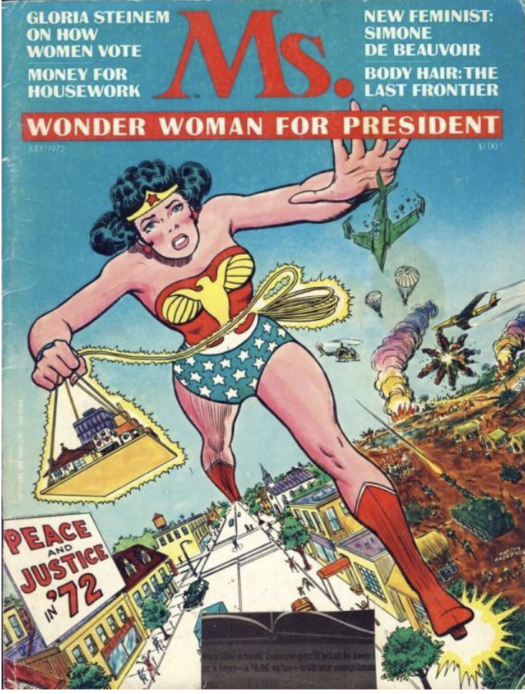 When the feminist movement took on the system, I joined protesters, marching over and over for abortion rights, the ERA (the Equal Rights amendment, guaranteeing women the same pay as their male counterparts) and for humane treatment for rape victims.
When the feminist movement took on the system, I joined protesters, marching over and over for abortion rights, the ERA (the Equal Rights amendment, guaranteeing women the same pay as their male counterparts) and for humane treatment for rape victims.
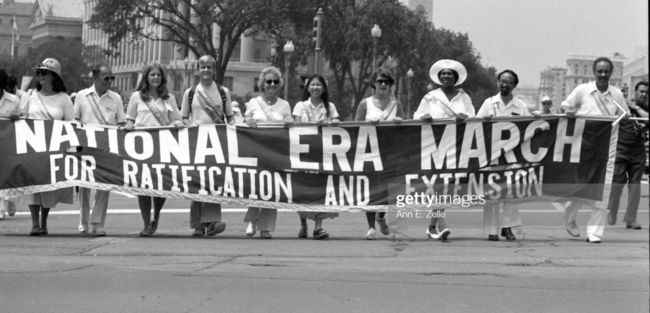
National March for the ERA, Washington, DC, July 9, 1978
Once women’s numbers surged among the professions and in business, feminism morphed into corporate feminism. Pants-suited professional women followed Sheryl Sandberg’s advice to “lean in,” which amounted to aping male behavior to climb the corporate ladder or make partner in a law firm. Sisterhood, among professional women, was reduced to supporting one another’s ambitions over after-work drinks.
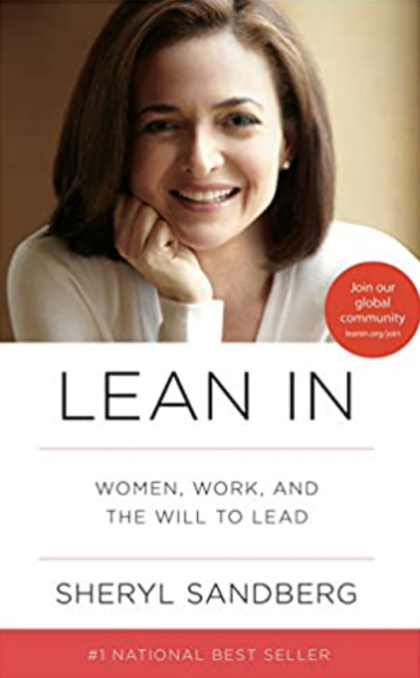
Feminist slogans, once plastered on signs in street protests, are now relegated to T-shirts, coffee mugs, greeting cards, and a slew of other products.
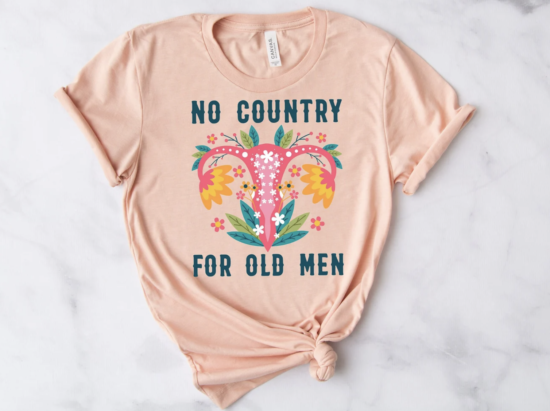
Politicians, threatened by feminism, badmouthed feminists to limit their power. Feminists were labeled lesbians and man-haters. Working mothers were considered a threat to the stability of the nuclear family. In response, straight young women hesitated to call themselves feminists, fearful of ending up dateless. A common response among this group was, “I’m a Feminist, but . . . .” Feminism had to be downplayed to get a job or a man.
A weakened women’s movement helps to explain the tepid response to the Supremes’ reversal of Roe v. Wade.
If this had occurred, twenty or thirty years ago, second wave feminists would be protesting en masse for abortion rights. Even in their heyday feminists neglected to campaign for poor women. If we are to pump new life into the women’s movement, it’s critical that we become more inclusive.
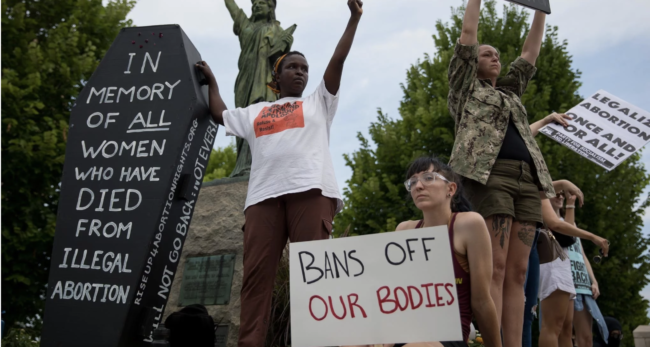
The Women’s March, formed to protest Trump’s sexist behavior, has dropped off the radar. Why has it become so difficult to sustain protests focused on women’s rights?
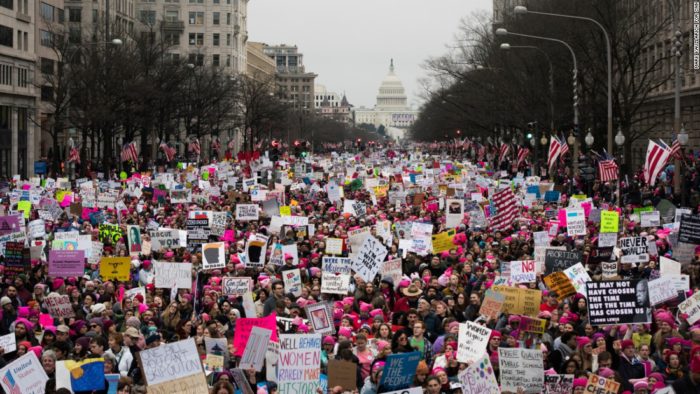
Record numbers of women participated in the January, 2017 DC Women’s March
Is the internet responsible for draining the oxygen from mass protests?
In 2022, women’s outrage is chiefly limited to scathing posts on Twitter and Facebook. Most of my women friends are despondent over losing abortion rights but taking to the streets isn’t an option for them. They feel defeated, having lost faith in trying to change a system controlled by big money, where billionaires use their money and influence to advance right wing platforms.
Other activists are falling for the Democrats’ message to restore abortion rights by voting for pro-choice candidates. This is a questionable strategy. The Republicans are on track to win big in the midterms. A small handful of newly elected pro-choice representatives won’t turn the tide.
What can make a difference is a women’s general strike.
Mobilizing for one means addressing the hopelessness of older women and the indifference of younger women, largely unfamiliar with taking to the streets. Rights handed to them at birth no longer exist.
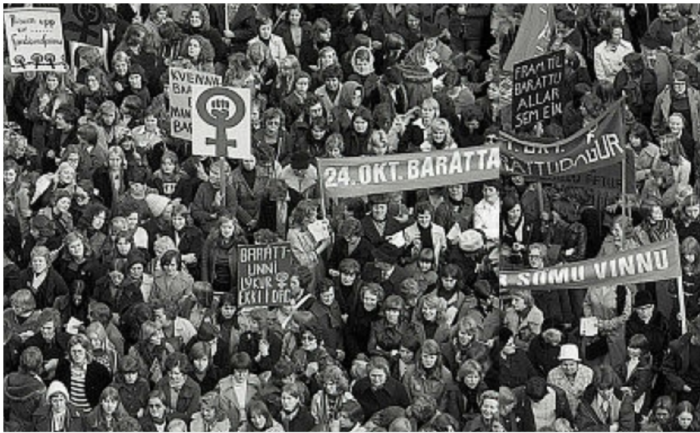
Iceland’s Women’s General Strike, 1974 (Iceland Magazine)
If a new, revitalized women’s movement is to succeed, we must find a way to engage women, who support women’s rights, but, for one reason or another, aren’t feeling the urgency facing us. Every day a state legislature passes laws to restrict abortion rights, including new efforts to make it illegal to cross state lines to get an abortion, or to secure abortion pills through the mail.
Would the Suffragettes have backed down this easily, or the mothers of Argentine’s Dirty Wars, who protested for years against the “disappearance” of their young adult children, or Native American women who led the Standing Rock protests?
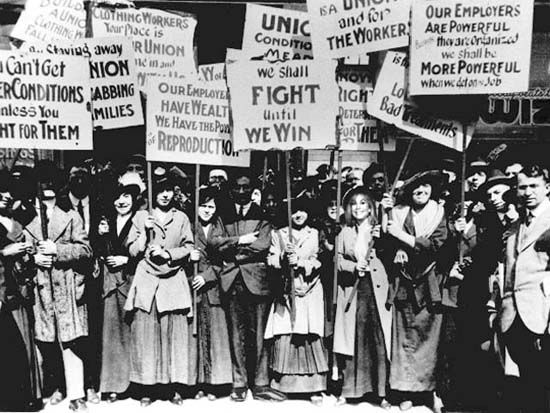
A Suffragettes’ protest
We owe it to all the women and girls in this country, regardless of race, sexual orientation, or income level to protest the 2022 war against women. Activism is the best antidote to despair. See you on the streets!
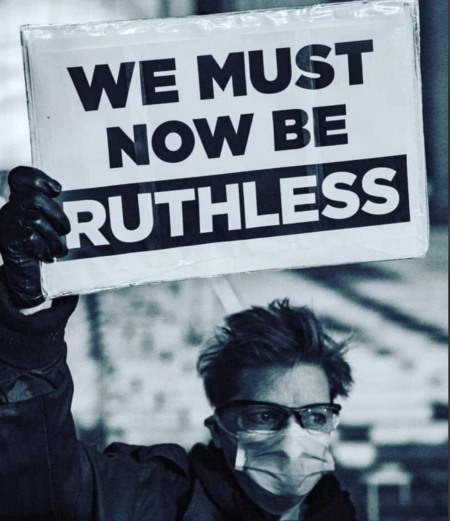
 When the feminist movement took on the system, I joined protesters, marching over and over for abortion rights, the ERA (the Equal Rights amendment, guaranteeing women the same pay as their male counterparts) and for humane treatment for rape victims.
When the feminist movement took on the system, I joined protesters, marching over and over for abortion rights, the ERA (the Equal Rights amendment, guaranteeing women the same pay as their male counterparts) and for humane treatment for rape victims.






